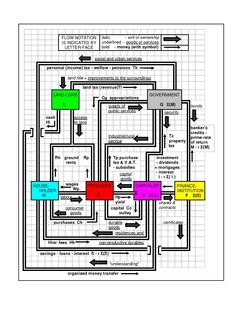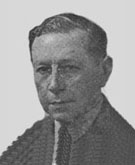Related Research Articles

Capitalism is an economic system based on the private ownership of the means of production and their operation for profit. Central characteristics of capitalism include capital accumulation, competitive markets, price system, private property, property rights recognition, voluntary exchange, and wage labor. In a market economy, decision-making and investments are determined by owners of wealth, property, or ability to maneuver capital or production ability in capital and financial markets—whereas prices and the distribution of goods and services are mainly determined by competition in goods and services markets.
The labor theory of value (LTV) is a theory of value that argues that the economic value of a good or service is determined by the total amount of "socially necessary labor" required to produce it.

Anti-capitalism is a political ideology and movement encompassing a variety of attitudes and ideas that oppose capitalism. In this sense, anti-capitalists are those who wish to replace capitalism with another type of economic system, like socialism or communism.

Finance capitalism or financial capitalism is the subordination of processes of production to the accumulation of money profits in a financial system.

Thorstein Bunde Veblen was a Norwegian-American economist and sociologist who, during his lifetime, emerged as a well-known critic of capitalism.
In economics, capital goods or capital are "those durable produced goods that are in turn used as productive inputs for further production" of goods and services. At the macroeconomic level, "the nation's capital stock includes buildings, equipment, software, and inventories during a given year."

An economic system, or economic order, is a system of production, resource allocation and distribution of goods and services within a society or a given geographic area. It includes the combination of the various institutions, agencies, entities, decision-making processes and patterns of consumption that comprise the economic structure of a given community.
Institutional economics focuses on understanding the role of the evolutionary process and the role of institutions in shaping economic behavior. Its original focus lay in Thorstein Veblen's instinct-oriented dichotomy between technology on the one side and the "ceremonial" sphere of society on the other. Its name and core elements trace back to a 1919 American Economic Review article by Walton H. Hamilton. Institutional economics emphasizes a broader study of institutions and views markets as a result of the complex interaction of these various institutions. The earlier tradition continues today as a leading heterodox approach to economics.
A theory of value is any economic theory that attempts to explain the exchange value or price of goods and services. Key questions in economic theory include why goods and services are priced as they are, how the value of goods and services comes about, and—for normative value theories—how to calculate the correct price of goods and services.
A theory of capitalism describes the essential features of capitalism and how it functions. The history of various such theories is the subject of this article.

Fictitious capital is a concept used by Karl Marx in his critique of political economy. It is introduced in chapter 25 of the third volume of Capital. Fictitious capital contrasts with what Marx calls "real capital", which is capital actually invested in physical means of production and workers, and "money capital", which is actual funds being held. The market value of fictitious capital assets varies according to the expected return or yield of those assets in the future, which Marx felt was only indirectly related to the growth of real production. Effectively, fictitious capital represents "accumulated claims, legal titles, to future production" and more specifically claims to the income generated by that production.
A price signal is information conveyed to consumers and producers, via the prices offered or requested for, and the amount requested or offered of a product or service, which provides a signal to increase or decrease quantity supplied or quantity demanded. It also provides potential business opportunities. When a certain kind of product is in shortage supply and the price rises, people will pay more attention to and produce this kind of product. The information carried by prices is an essential function in the fundamental coordination of an economic system, coordinating things such as what has to be produced, how to produce it and what resources to use in its production.
The misery index is an economic indicator, created by economist Arthur Okun. The index helps determining how the average citizen is doing economically and it is calculated by adding the seasonally adjusted unemployment rate to the annual inflation rate. It is assumed that both a higher rate of unemployment and a worsening of inflation create economic and social costs for a country.

Criticism of Marxism has come from various political ideologies and academic disciplines. This includes general intellectual criticism about dogmatism, a lack of internal consistency, criticism related to materialism, arguments that Marxism is a type of historical determinism or that it necessitates a suppression of individual rights, issues with the implementation of communism and economic issues such as the distortion or absence of price signals and reduced incentives. In addition, empirical and epistemological problems are frequently identified.
Jonathan Nitzan is Professor of Political Economy at York University, Toronto, Canada.
Differential accumulation is an approach for analysing capitalist development and crisis, tying together mergers and acquisitions, stagflation and globalization as integral facets of accumulation. The concept has been developed by Jonathan Nitzan and Shimshon Bichler.

Shmuel Tolkowsky was a Belgian-born agronomist, Zionist and Israeli diplomat. He became the assistant to Chaim Weizmann and Nachum Sokolov, two important leaders of the Zionist Movement. Shmuel Tolkowsky himself was the son-in-law of Yitzhak Goldberg, a founder of the Jewish Foundation Fund.
Criticisms of the labor theory of value affect the historical concept of labor theory of value (LTV) which spans classical economics, liberal economics, Marxian economics, neo-Marxian economics, and anarchist economics. As an economic theory of value, LTV is central to Marxist social-political-economic theory and later gave birth to the concepts of labour exploitation and surplus value. LTV criticisms therefore often appear in the context of economic criticism, not only for the microeconomic theory of Marx but also for Marxism, according to which the working class is exploited under capitalism.

Neo-Marxism is a Marxist school of thought encompassing 20th-century approaches that amend or extend Marxism and Marxist theory, typically by incorporating elements from other intellectual traditions such as critical theory, psychoanalysis, or existentialism.

Marxian economics, or the Marxian school of economics, is a heterodox school of political economic thought. Its foundations can be traced back to Karl Marx's critique of political economy. However, unlike critics of political economy, Marxian economists tend to accept the concept of the economy prima facie. Marxian economics comprises several different theories and includes multiple schools of thought, which are sometimes opposed to each other; in many cases Marxian analysis is used to complement, or to supplement, other economic approaches. Because one does not necessarily have to be politically Marxist to be economically Marxian, the two adjectives coexist in usage, rather than being synonymous: They share a semantic field, while also allowing both connotative and denotative differences.
References
- ↑ Jonathan Nitzan and Shimshon Bichler, Capital as Power: A Study of Order and Creorder, Routledge, 2009, p. 228.
- ↑ "Capitalism as a Mode of Power interviewed by Piotr Dutkiewicz" . Retrieved 1 February 2014.